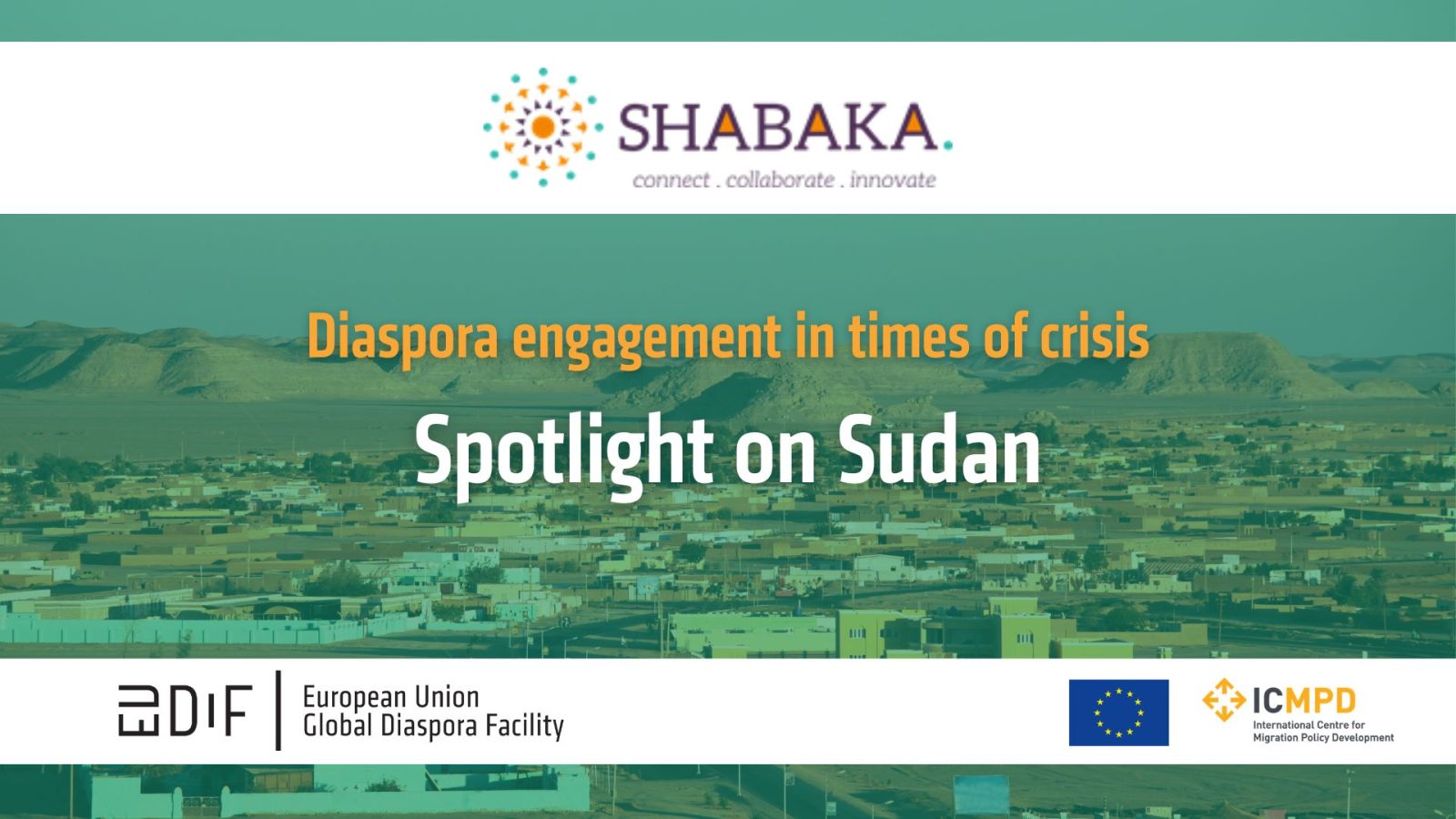
In 2020, EUDiF commissioned a multi-country case study, Diaspora engagement in time of crisis, from research partner, Shabaka. Two years later, as Sudan, one of the countries previously studied and important for the Shabaka team, suffers a further crisis, Shabaka looks at the evolution in diaspora responses in this challenging context.
In the 2020 case study, Diaspora engagement in time of crisis, Sudan was one of six countries analysed. At the time, Shabaka looked into how the Sudanese diaspora mobilised to help the country during the Covid-19 pandemic and major flooding. Tragically, as the country was slowly recovering, in 2023 a new crisis emerged, one which sent ripples around the world and, particularly, through the diaspora which regrouped and redoubled its efforts to support Sudan. As the crisis continues to unfold, Shabaka turns the spotlight on the herculean efforts of the diaspora in the UK, and one particular organisation supporting the struggling healthcare sector.
Read Shabaka’s mini case study to learn about the Sudanese diaspora’s tireless work in advocacy, community organising and humanitarian assistance, and hear from the healthcare and human right’s organisation, Sudan’s Doctors for Human Rights.
Beyond Sudan
The five other countries covered in the original case study were Lebanon, Nepal, Nicaragua, Ukraine and Zambia. In the 12 months since our last update on these countries, there have been significant global developments which have affected all countries, not least the continuation of the war in Ukraine.
What unites these countries and all others affected by crises of varying types, complexity and duration, is that diasporas are quick to react, dogged in their determination to make a difference, and always innovating. This comes in many forms: advocacy and activism in unexpected fora; identifying and filling gaps at rapid speed; taking to social media to achieve social and political goals; supporting policy development and much more.
Diaspora individuals, communities and organisations are an important actor in crisis response and post-crisis recovery. They should be considered as a vital partner in all stages of crisis preparedness and recovery. At the Future Forum in October, we will hear from several speakers on diaspora supporting countries of heritage on the road from crisis to recovery.
For more insights and recommendations specifically on diaspora humanitarianism, read the 2020 case study: